| Listing 1 - 10 of 326 | << page >> |
Sort by
|

ISBN: 917402275X Year: 1998 Publisher: Stockholm : Almqvist and Wiksell,
Abstract | Keywords | Export | Availability | Bookmark
 Loading...
Loading...Choose an application
- Reference Manager
- EndNote
- RefWorks (Direct export to RefWorks)
Book
ISBN: 9780367880590 Year: 2019 Publisher: London : Routledge,
Abstract | Keywords | Export | Availability | Bookmark
 Loading...
Loading...Choose an application
- Reference Manager
- EndNote
- RefWorks (Direct export to RefWorks)
Book
Year: 1832 Publisher: Gand : D. J. vanderhaeghen,
Abstract | Keywords | Export | Availability | Bookmark
 Loading...
Loading...Choose an application
- Reference Manager
- EndNote
- RefWorks (Direct export to RefWorks)
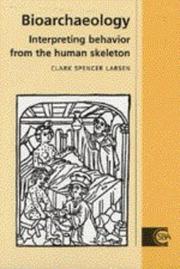
ISBN: 0521496411 0521658349 Year: 1997 Publisher: Cambridge : Cambridge university press,
Abstract | Keywords | Export | Availability | Bookmark
 Loading...
Loading...Choose an application
- Reference Manager
- EndNote
- RefWorks (Direct export to RefWorks)
Human remains recovered from archaeological sites can help us interpret lifetime events such as disease, physiological stress, injury and violent death, physical activity, tooth use, diet and demographic history of once-living populations. This is the first comprehensive synthesis of the emerging field of bioarchaeology. A central theme is the interaction between biology and behaviour, underscoring the dynamic nature of skeletal and dental tissues, and the influences of environment and culture on human biological variation. It emphasises research results and their interpretation, covering palaeopathology, physiological stress, skeletal and dental growth and structure, the processes of aging and biodistance. It will be a unique resource for students and researchers interested in biological and physical anthropology or archaeology.
Human remains (Archaeology) --- Human skeleton --- Analysis --- Human remains (Archaeology). --- Analysis.
Book
ISBN: 0715316044 9780715316047 Year: 2002 Publisher: Newton Abbot : David & Charles,
Abstract | Keywords | Export | Availability | Bookmark
 Loading...
Loading...Choose an application
- Reference Manager
- EndNote
- RefWorks (Direct export to RefWorks)
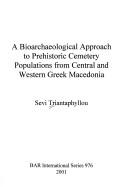
ISBN: 1841711853 Year: 2001 Publisher: Oxford : Archaeopress,
Abstract | Keywords | Export | Availability | Bookmark
 Loading...
Loading...Choose an application
- Reference Manager
- EndNote
- RefWorks (Direct export to RefWorks)
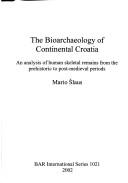
ISBN: 184171402X Year: 2002 Publisher: Oxford : Archaeopress,
Abstract | Keywords | Export | Availability | Bookmark
 Loading...
Loading...Choose an application
- Reference Manager
- EndNote
- RefWorks (Direct export to RefWorks)
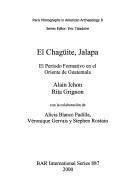
ISBN: 1841710873 Year: 2000 Publisher: Oxford : Archaeopress,
Abstract | Keywords | Export | Availability | Bookmark
 Loading...
Loading...Choose an application
- Reference Manager
- EndNote
- RefWorks (Direct export to RefWorks)
Excavations (Archaeology) --- Human remains (Archaeology) --- Mayas --- Antiquities.
Book
ISBN: 1841711810 Year: 2001 Publisher: Oxford : Archaeopress,
Abstract | Keywords | Export | Availability | Bookmark
 Loading...
Loading...Choose an application
- Reference Manager
- EndNote
- RefWorks (Direct export to RefWorks)
Excavations (Archaeology) --- Human remains (Archaeology) --- Neolithic period
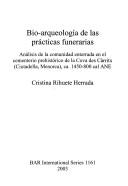
ISBN: 1841715298 Year: 2003 Publisher: Oxford : Archaeopress,
Abstract | Keywords | Export | Availability | Bookmark
 Loading...
Loading...Choose an application
- Reference Manager
- EndNote
- RefWorks (Direct export to RefWorks)
Burial --- Human remains (Archaeology) --- Prehistoric peoples
| Listing 1 - 10 of 326 | << page >> |
Sort by
|

 Search
Search Feedback
Feedback About UniCat
About UniCat  Help
Help News
News